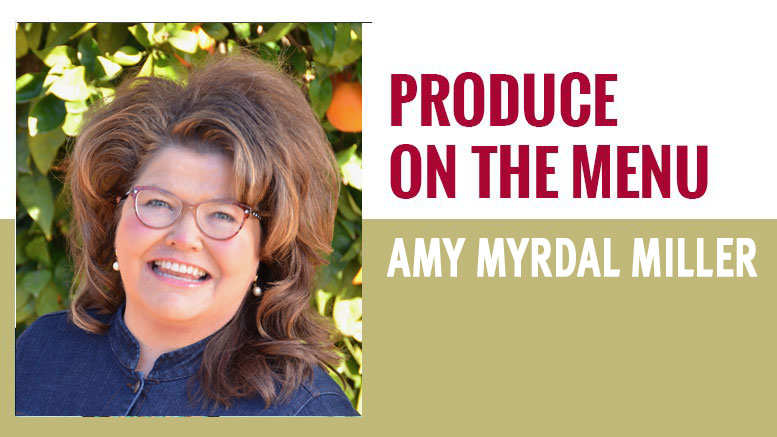The Gen Z Demand for Sustainable Food
April 29, 2024 | 4 min to read
In the evolving landscape of foodservice, Generation Z diners increasingly define sustainability based on practices like organic sourcing and certifications such as Fair Trade. However, the article emphasizes the importance of understanding agricultural practices, highlighting that terms like “organic” and “regenerative” can mislead consumers about their true benefits. Foodservice leaders need to engage in dialogue about the complexities of farming while recognizing that sustainable practices must also address financial viability for producers.

Originally printed in the March 2024 issue of Produce Business.
A recent discussion among foodservice leaders left me pondering the issue of how Generation Z diners (those born between 1997 and 2012) are defining “sustainability.” Are they an intellectually curious generation that is well read or are they being led to certain beliefs by marketers of many products from various sectors? The answer is likely both.
Leaders from campus dining operations talk about how concerned their customers are with sustainable sourcing of products, and how interested college students are in certifications like Fair Trade or the Rain Forest Alliance that show how the environment is protected or producers are treated fairly. Many of these campus dining professionals also talk about the demand for organic ingredients, most notably produce, stating that students want to ensure they are choosing foods that are better for the earth. Organic appears to be an appealing claim that simply makes people feel good.
But are we about to be caught off guard by smart consumers who can see beyond claims about not using synthetic pesticides or fertilizers, or enhancing soil health to reduce erosion and retain moisture?
Many organic marketers like their consumers to believe organic production does not use any crop protection products, but we know this is not true. They simply use OMRI (Organic Materials Review Institute) approved products.
The term “regenerative” agriculture has captured the attention of many people in the past few years, as more publicly traded food companies seek to boost their CSR ratings by demanding suppliers follow regenerative practices. I wince when foodservice leaders talk about these practices like they are new to farmers, but this farmer’s daughter recognizes that crop rotation, cover crops, reduced tillage, and increasing biodiversity have been important practices on farms for many generations.
The produce industry has an important role to play in ensuring production practices are as “sustainable” as possible, but we must also help people, especially foodservice leaders, appreciate why certain practices are used in produce production.
We need to build bridges of understanding about the diversity of agricultural practices that allow farmers to be financially, as well as environmentally, sustainable.
The concept of intensification of agriculture has a cold, corporate sound, but it is critically important to sustainable production. Producing greater yields on less land with fewer inputs is important for everyone in agriculture. Producing more with less labor is a particularly troubling issue for the produce industry.
If we go along and numbly nod our heads when people in foodservice say, “Our customers want more organics. They’re better for the environment,” are we doing anyone any favors? We need to get ahead of this mindset and be outspoken thought leaders on what sustainable produce production will look like in five to 10 years.
Yes, there is a place for organic production in produce production today, but we can’t let our customers and their customers believe it is somehow better for people or the environment. Growing less produce on more land is not sustainable, considering all the pressures being faced by agriculture. (Did I mention I’m a big proponent of the intensification of agricultural production?)
We also can’t ignore issues like the fact that soil is being tilled to grow crops like lettuce, broccoli, strawberries and potatoes. Campus dining leaders and their student customers concerned about sustainable sourcing are asking questions about carbon sequestration practices. They’re also worried about water stewardship, and how that precious resource is being used in produce production, especially in western states. But don’t tell them drip irrigation lines are made of polyethylene. Plastic has become a swear word for many younger consumers who now carry Yetis or Stanley cups for drinking water throughout the day.
Isn’t there another option for farmers, they ask? Sure, but should we continue to put pressure, both financial and otherwise, on already strapped industries? Is it fair to ask strawberry growers, for instance, to use biodegradable irrigation tubes that cost more, unless foodservice operators are willing to pay more for those amazing strawberries?
Many critical issues are being discussed in campus dining operations due to the demands of their customers. These are issues that leaders in produce are also discussing, but are we doing so in an echo chamber? Do we need to do more to engage with thought leaders across the culinary and foodservice industry? I believe so.
I often hear chefs making downright outrageous statements about our food system, the very food system that allows them to purchase, prepare and present amazing food to the rest of us. We need to spend as much time helping them appreciate the challenges in agriculture as we do exclaiming over their latest culinary creation. And we need to be ready to build bridges of understanding about the diversity of agriculture production types and practices that allow farmers to be financially, as well as environmentally, sustainable.

Amy Myrdal Miller, MS, RDN, FAND is a farmer’s daughter from North Dakota, award-winning dietitian, and founder and president of Farmer’s Daughter Consulting, Inc. She is the retail nutrition marketing and foodservice partnership specialist for the Buy California Marketing Agreement/CA GROWN, a member of the Texas A&M Institute for Advancing Health Through Agriculture AgriLife External Advisory Board, and co-author of Cooking á la Heart, a 500-recipe cookbook based on global plant-forward eating cultures. Learn more at www.farmersdaughterconsulting.com and follow her insights on food and flavor on social media @alaheartamy.
1 of 10 article in Produce Business April 2024

